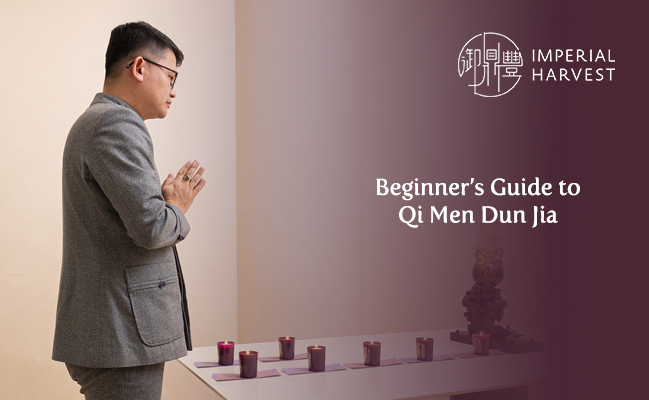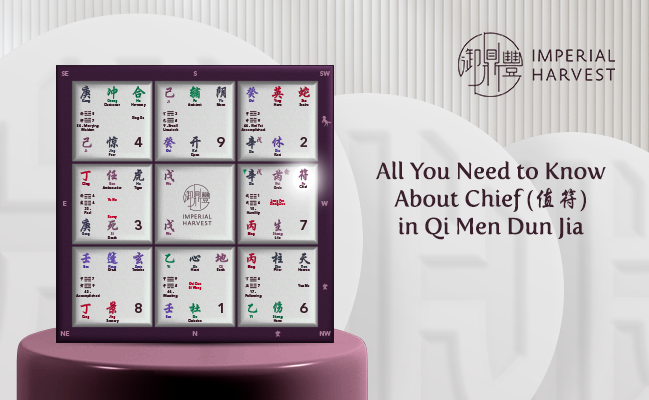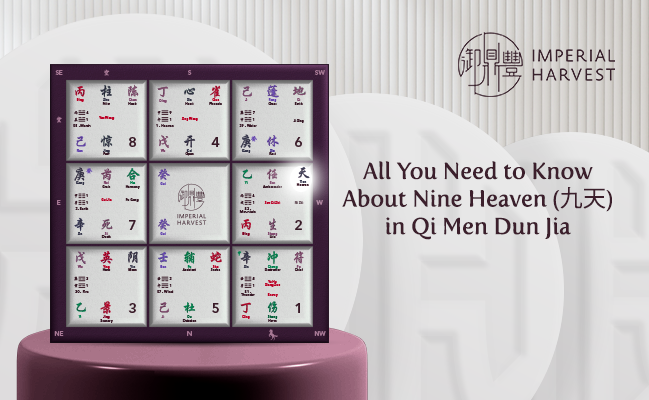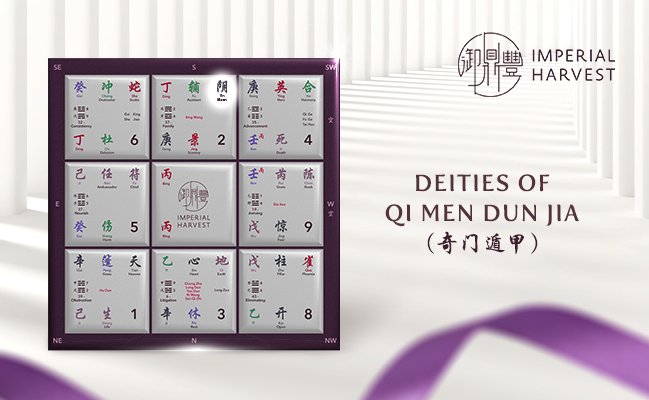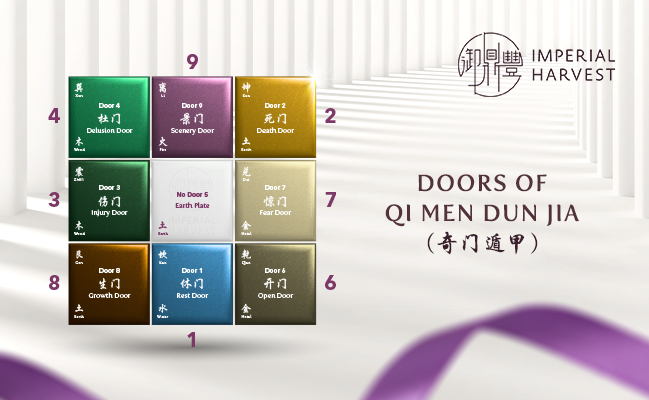

Posted by Imperial Harvest on 08 January 2025
Doors of Qi Men Dun Jia (奇门遁甲)
Estimated Reading Time: 7 mins
In Qi Men Dun Jia (奇门遁甲), there are eight types of doors: Life, Death, Open, Delusion, Rest, Scenery, Hurt, and Fear. A Qi Men Dun Jia practitioner selects the most suitable door based on a client’s goals, aligning their actions with the cosmic energies of the Big Dipper constellation.
When the chosen door is aligned with a person’s actions, the cosmic energies of the Big Dipper constellation harmonise with their intentions, significantly enhancing their chances of success.
For example, if a client seeks to collect debt, the practitioner may recommend positioning themself with their back facing the Hurt Door, based on the bi-hourly Qi Men Dun Jia chart, to optimise their efforts.
Similarly, for a child preparing for an important examination, the practitioner may suggest entering the school through the Scenery Door to boost their chances of success.
For a client involved in critical negotiations or job interviews, positioning themselves with their back facing the Life Door can maximise their chances of success.
A Qi Men Dun Jia chart integrates four key dimensions—Deities, Stars, Heaven, and Earth—offering profound insights and strategic guidance. By aligning with cosmic energies, practitioners can optimise success, overcome challenges, and manifest their aspirations with greater ease.
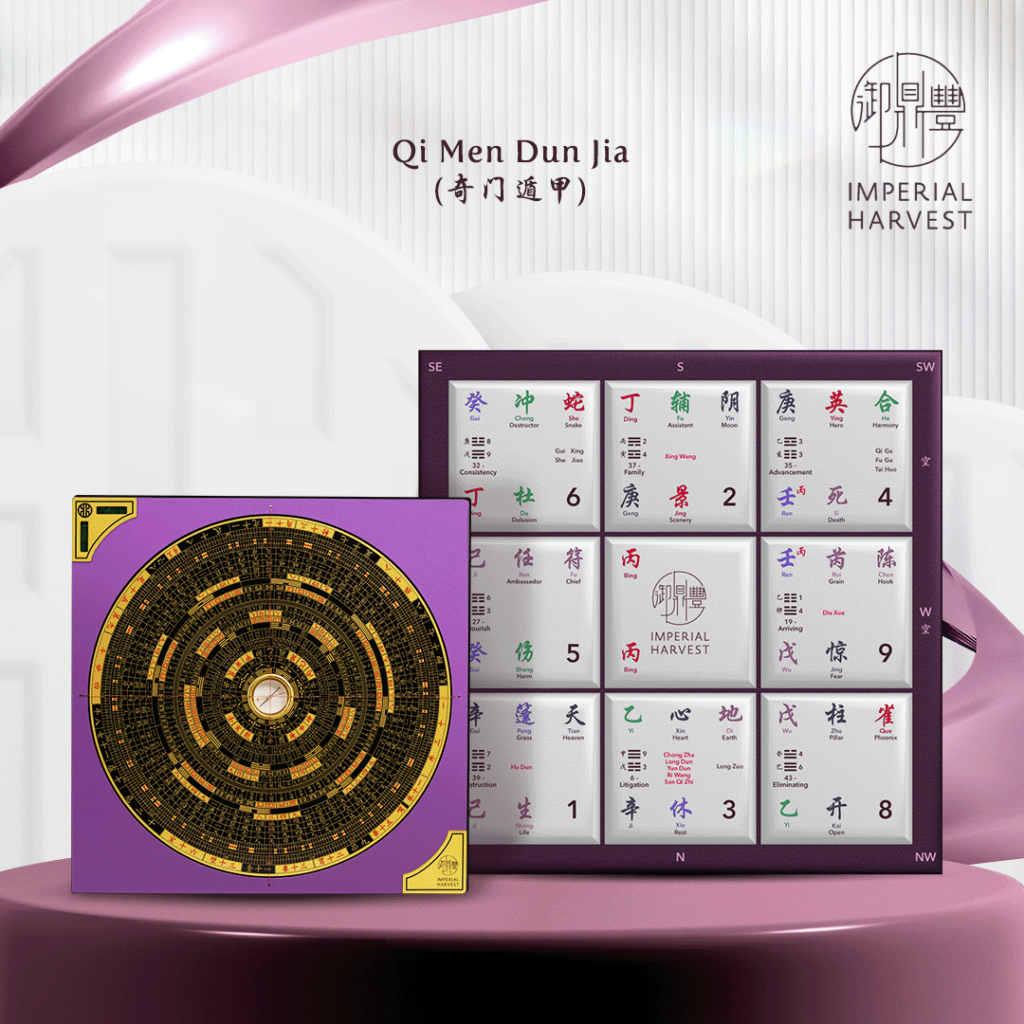
What is Qi Men Dun Jia (奇门遁甲)?
Qi Men Dun Jia is a classical Chinese metaphysical system employed for choosing auspicious dates, divination, and strategic planning to attain specific goals. This method of divination provides you with a forecast of how a situation may unfold. In addition, it is also used to accurately select exact times and directions to take action and produce desired results.
This comprehensive Chinese divination technique is based on astronomical observations, consisting of various aspects and concepts in Chinese metaphysics — including Yin and Yang (阴阳), the Five Elements (五行), 10 Heavenly Stems (十天干), the Eight Trigrams (八卦) and the 24 Solar Terms (二十四节气).
How does Qi Men Dun Jia relate to Chinese astrology?
This complex practice is founded on the study of the Big Dipper constellation (北斗七星), the Later Heaven Ba Gua, the Five Elements, and the principles of Yin and Yang.
In practice, Qi Men Dun Jia (奇门遁甲) enhances Chinese astrology by offering a more dynamic, situational approach—allowing astrologers and practitioners to pinpoint auspicious moments and actions for individuals based on their astrological profiles, the alignment of the cosmos, and specific events. This way, it combines the understanding of a person’s inherent astrological characteristics with the strategic insight of when and how to act following cosmic forces.
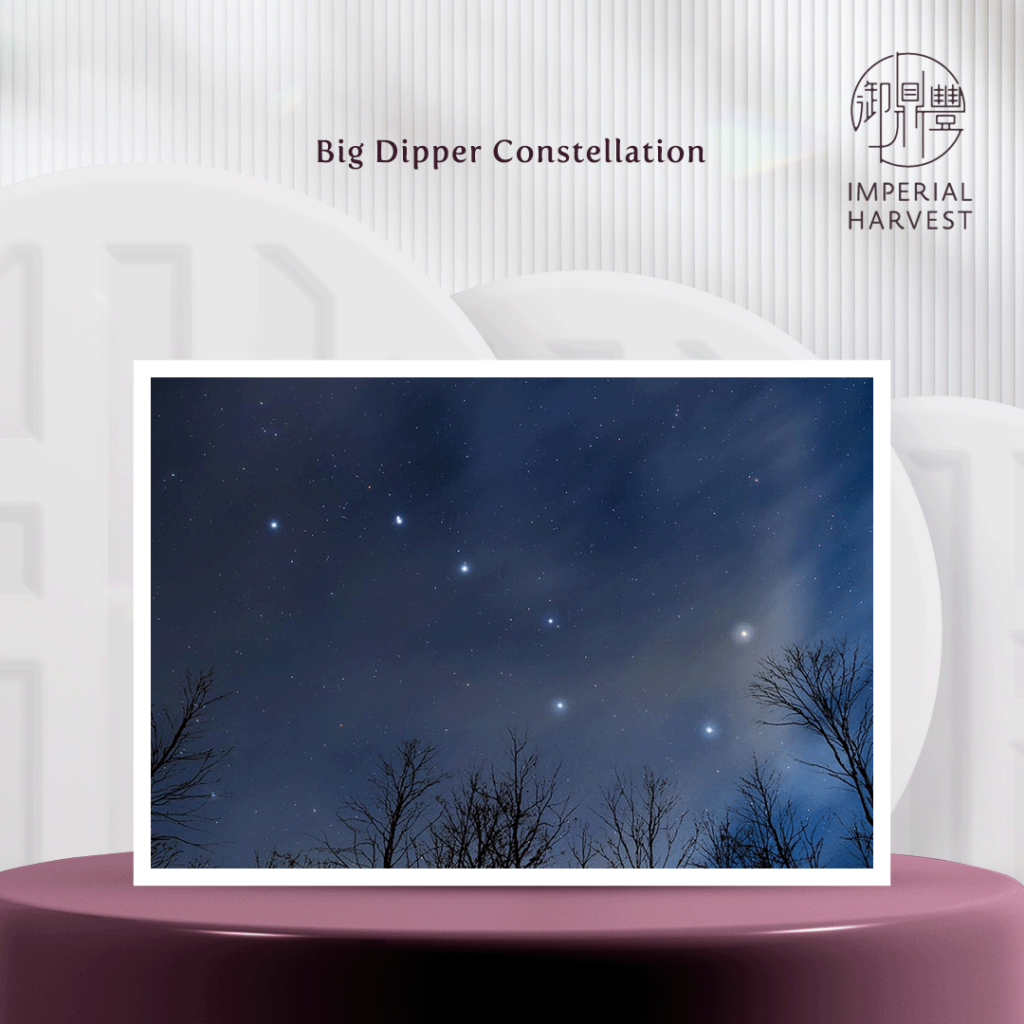
The History of Qi Men Dun Jia
Qi Men Dun Jia (奇门遁甲), a powerful system of Chinese metaphysics, has a rich history rooted in military strategy, Feng Shui, and personal growth. Its origins are intertwined with ancient Chinese legend, particularly the story of Chiyou, the leader of the Nine Li tribe. Chiyou, known for his formidable military power and supernatural abilities, challenged the Yellow Emperor, Huangdi, one of China’s earliest rulers. In the face of Chiyou’s advancing forces, Huangdi sought guidance from the celestial goddess Jiutian Xuannü, who introduced him to the principles of Qi Men Dun Jia. Based on natural phenomena and strategic timing, this system enabled Huangdi to craft innovative tactics, including weather manipulation and battlefield manoeuvres, ultimately leading to his victory over Chiyou.
Over the centuries, Qi Men Dun Jia evolved into a sophisticated tool for strategy and decision-making, used not only in warfare but also in personal planning. Zhuge Liang most famously exemplifies its application in military strategy during the Battle of Red Cliffs. Facing the overwhelming naval forces of Cao Cao, Zhuge Liang employed the mystical Seven-Star Lamp Ritual, a Qi Men Dun Jia technique that aligned with the movements of the Big Dipper to summon the east wind. This wind enabled a devastating fire attack that decimated Cao Cao’s fleet, securing a crucial victory for the Shu and Wu forces.
Today, Qi Men Dun Jia is a cornerstone of Chinese metaphysical studies, symbolising wisdom, foresight, and strategic alignment with natural forces.
Learn about historical figures and events associated with Qi Men Dun Jia
Understanding Doors in Qi Men Dun Jia
In Qi Men Dun Jia, the doors represent human factors and the environment, reflecting the potential outcomes of actions taken. For instance, the Open Door (开门) suggests that job opportunities will likely lead to positive results, while an unfavourable door indicates that actions may result in negative outcomes. The quality of the door is a key indicator of how aligned one’s actions are with success: A favourable door suggests that the actions you take will likely yield positive results. It signifies a path that is aligned with success and favourable outcomes. Conversely, an unfavourable door implies that your actions may lead to unfavourable results.
A Qi Men Dun Jia chart consists of a 3-by-3 grid called the Nine Palaces (九宮), where the Eight Doors play a crucial role, alongside the Heaven and Earth plate, Spirit plate, and Star plate. The arrangement of these elements changes every double hour of the day, creating 1,080 unique configurations. The Eight Doors, within this complex system, guide the flow of cosmic energies and influence decisions, offering valuable insights into the potential success or failure of any given action.
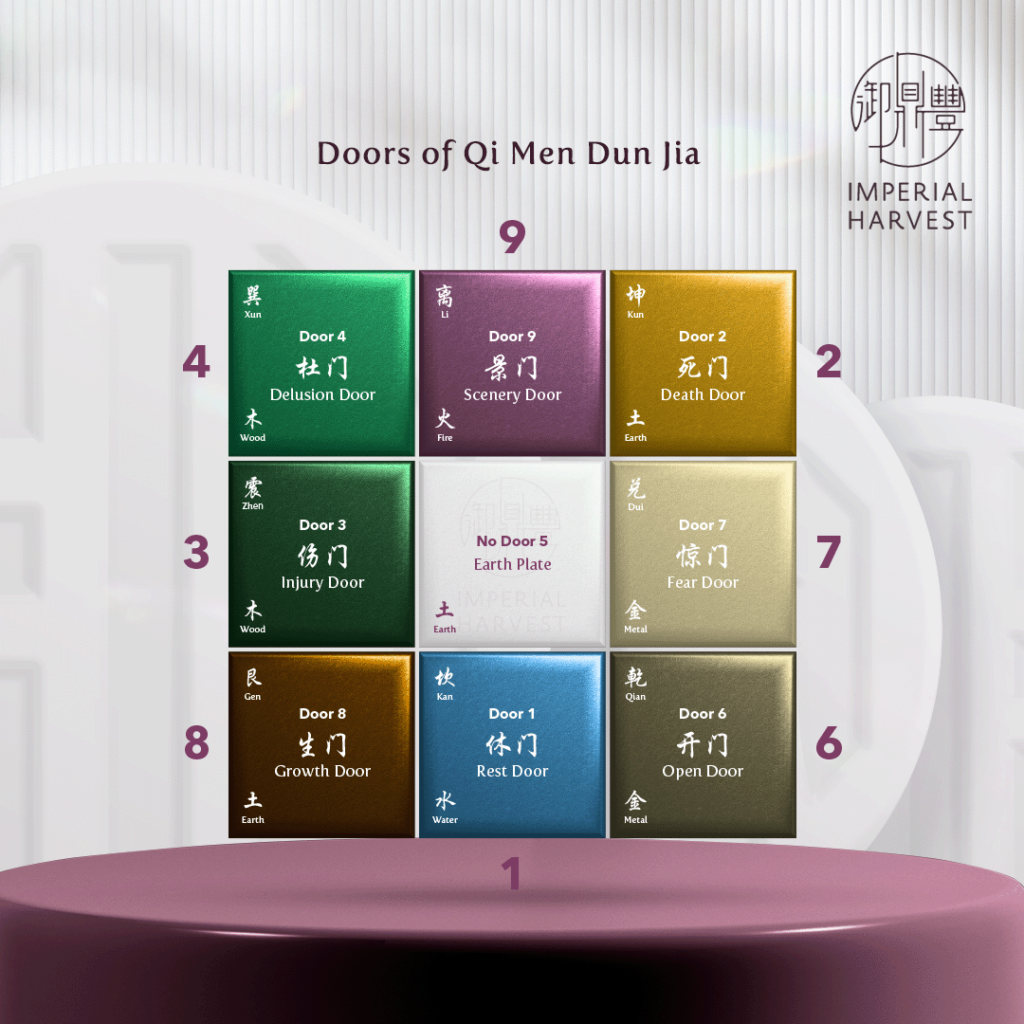
Doors of Qi Men Dun Jia (奇门遁甲)
Injury Door (伤门)
The Injury door, associated with the Wood element, represents scenarios such as a house surrounded by trees, the presence of wooden objects, exercise, aggression, or significant financial expenditure. It favours individuals who take proactive action and lead the way.
However, those who choose the Injury door must be ready for obstacles and resistance. While it offers opportunities for rewards and progress, it requires swift, decisive actions, significant resource investment, and considerable effort. The Injury door is like a fierce warrior entering the market first, facing resistance and setbacks.
Delusion Door (杜门)
The Delusion door, linked to the Wood element, is considered negative in the Qi Men Dun Jia system. It represents retreat and is often used to escape potential crimes or avoid unwanted attention. Introverted individuals seeking to remain hidden from creditors or other undesired parties may find comfort in this door.
The Delusion door applies to career decisions, daily choices, and buying or selling transactions. When it appears in a person’s year stem, it indicates a preference for secrecy and a reserved disposition. If the life stem aligns with the Delusion door, it suggests a period of adversity. In career and studies, the Delusion door prevails during interviews or new job offers, while the Open door represents the current job. Additionally, it helps evaluate the suitability of specific subjects of study, supporting comprehensive decision-making.
Scenery Door (景门)
The Scenery door, linked to the Fire element, has both positive and negative connotations. It attracts attention during interviews and is associated with happiness and outspokenness. Symbolically, it represents social media, the market, news, cities, sunny areas, technology, telecommunications, and fashion.
When it appears in a person’s year stem, it signifies attractiveness, unless it aligns with the water or metal palace. To analyse its effects, apply the principles of compel, counter, and graveyard stages. The Scenery door also serves as a focal point for verifying the authenticity of news and information.
Growth Door (生门)
The Growth door, embodying the Earth element, signifies rising fortunes and amplification in business, relationships, careers, studies, income generation, trading, marriage, fame, and medical treatment. It is highly auspicious, but its effectiveness wanes in the graveyard stage. This door represents progress, expansion, and goal achievement, offering favourable opportunities for personal success. However, it is less suited for severing ties or disengaging from certain aspects of life.
Fear Door (惊门)
The Fear door, representing the Metal element, signifies uncertainty, paralysis, and being overwhelmed by information. It may indicate mental illness or extreme frustration, leading to indecisiveness and hindered progress.
The Fear door offers limited utility, mainly in situations involving manipulation or intimidation, rather than direct attacks. It provides opportunities for ensnarement and deception. When the Fear door appears in a person’s life stem, it suggests incompetence, frustration, and a tendency to shift blame. It contrasts with the Injury door, which represents clarity of purpose and resolute action.
Open Door (开门)
The Open door, associated with the Metal element, represents the initiation of endeavours and favourable opportunities for new beginnings. In contrast to the Delusion door, it signifies a readiness to embrace new paths. The Open door provides the energy and enthusiasm needed to launch ventures and pursue ambitions, making it especially advantageous for startups. The involvement of an Ambassador further enhances its positive influence. When combined with the Bing (丙) and Ding (丁) stems, it indicates noble support and success in entrepreneurial efforts. The effects of the Open door should be assessed within the context of the compel, counter, or graveyard stages.
Rest Door (休门)
The Rest door, linked to the Water element, symbolizes tranquillity, stability, and repose. It offers respite from life’s demands, ensuring a serene existence. When it appears in a person’s life stem, it suggests a smooth and peaceful journey.
The Rest door applies to assessing business status, evaluating employee personalities, determining the suitability of health-related classes, examining family dynamics, and assessing partnership or marriage compatibility. It is favourable in backend business operations, such as recruitment and training. However, caution is needed in sales-related endeavours, as it may promote laziness. Its impact should be carefully examined within the context of the compel, counter, or graveyard stages.
Death Door (死门)
The Death Door is very inauspicious, representing the end. It is the opposite of the Growth Door. It signifies slow progress and a lack of skills in pursuing your personal or professional endeavours. In relationships, the presence of the Death Door indicates an impending end or a sour relationship. When seeking a mentor, a mentor with a Death Door symbolises their incompetence.
Modern Applications of Qi Men Dun Jia in the Imperial Harvest Experience
At Imperial Harvest, Master David seamlessly integrates a wide array of Chinese metaphysical disciplines—including Qi Men Dun Jia, Yi Jing, Bazi, and Feng Shui—to empower clients on their path to success and fulfilment. Qi Men Dun Jia has become a cornerstone of this holistic approach, offering precise insights and strategies to align clients’ actions with universal energies.

Potential questions that Qi Men Dun Jia may be applied to:
- “I want to know if my job interview will result in a good job offer.”
When examining two aspects of the question — “Will I get the job offer?” and “Is it a good job?” — through the scope of Qi Men Dun Jia, the presence of the Open Door, which produces the person inquiring, suggests a positive outcome in obtaining the job offer. - “What is the market receptivity of my new product?”
When considering the market receptivity of products upon their launch, an analysis of the situation could indicate if the market is already saturated, which may suggest a longer time before seeing success. It may also indicate the potential for profitability, especially if the Growth Door is present for the person inquiring. - “Will I profit from this business venture?”
Qi Men Dun Jia could indicate instances of arguments or conflicts with others, which might not be suitable for individuals who prefer to avoid confrontations or struggle with emotional stress. Furthermore, it could also point out that the venture could lead to the development of unfavourable habits. It’s important to consider these drawbacks and assess whether the associated cons align with personal preferences and goals.
A Modern Pathway to Success
Qi Men Dun Jia is a powerful tool for entrepreneurs, sales leaders, and ambitious professionals seeking to achieve extraordinary outcomes. By leveraging its profound wisdom, you can seize auspicious moments to excel in negotiations, secure significant deals, and thrive in pivotal engagements.
Download Imperial Harvest’s Qi Men Dun Jia Calendars here
Master David has developed the Imperial Harvest Qi Men Manifestation Calendar; a meticulously designed guide that identifies auspicious directions and timings to harness the blessings of Nine Heaven (九天), enabling practitioners to align with celestial energies and manifest their aspirations. In addition, he also designed the Qi Men Strategic Execution Calendar, which has been designed for professionals and entrepreneurs, to pinpoint the most auspicious bi-hourly directions for critical activities such as deal negotiations, persuasive discussions, and strategic planning. By highlighting key alignments with the Chief Deity/Nine Heaven and the Life/Open Door, this calendar helps unlock extraordinary opportunities for success.
At Imperial Harvest, Master David guides clients on a transformative journey towards success and fulfilment. With personalised services like Bazi readings and Qi Men Dun Jia consultations, Imperial Harvest is your trusted partner in unlocking harmony, prosperity, and lasting achievement.
Imperial Harvest’s expert consultants are always on hand to guide you on your journey and provide you with insights to help you realise your fullest potential. Book a complimentary consultation today or contact us at +65 92301640.
We are located at
For prospective clients:Imperial Harvest402 Orchard Road
Delfi Orchard #02-07/08
Singapore 238876 For existing clients:Imperial Harvest Prestige
402 Orchard Road
Delfi Orchard #03-24/25
Singapore 238876
Most Read Articles
Get to read our life changing articles and get inspired.
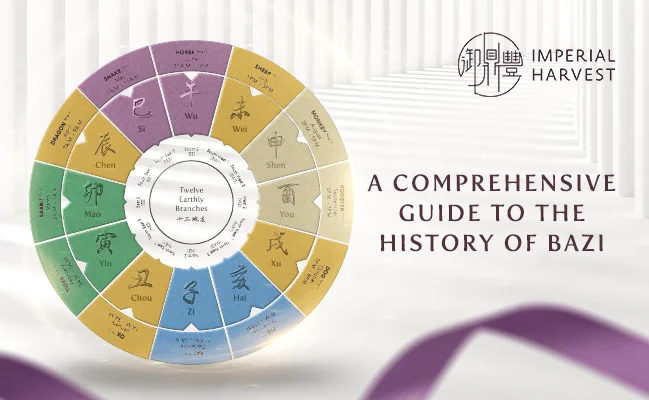
A Comprehensive Guide to the History of Bazi (八字)
Estimated Reading Time: 5 mins Bazi (八字) is often mistakenly assumed as the Chinese counterpart of western Astrology. The similarities between both systems lie in their utilisation of birth dates and time in their calculations, and the ability to be read from a tabulated chart. Where Astrology may take into account the positions of different […]
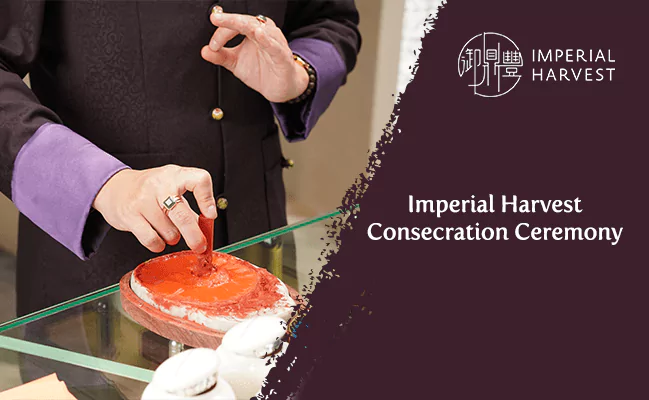
Imperial Harvest Consecration Ceremony
Estimated Reading Time: 5 mins At Imperial Harvest, each earthly treasure undergoes a series of consecration rites performed by Master David, before it is bestowed upon its blessed owner. Every aspect of these sacred Chinese anointing rituals is carefully examined and accurately represented in Master David’s blessings, reflecting Imperial Harvest’s deep respect for these esteemed […]
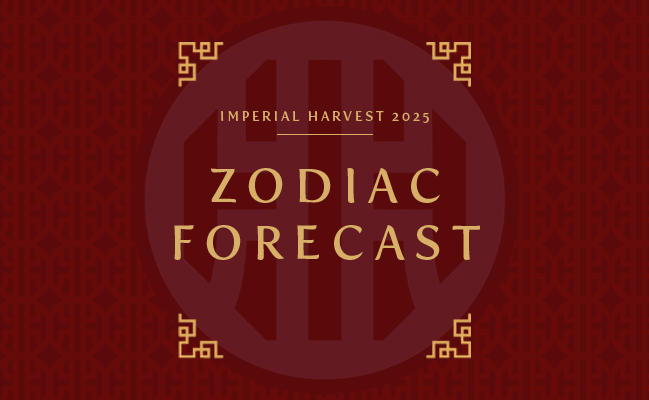
Imperial Harvest 2025 Zodiac Forecast
Estimated Reading Time: 7 mins The Year of the Wood Snake in 2025 brings a dynamic period of growth, transformation, and new beginnings. With its ambitious qualities, the Wood Snake’s influence offers unique opportunities for those who seek progress and renewal. Drawing from the time-honoured principles of Imperial Feng Shui, the Imperial Harvest 2025 Zodiac […]
